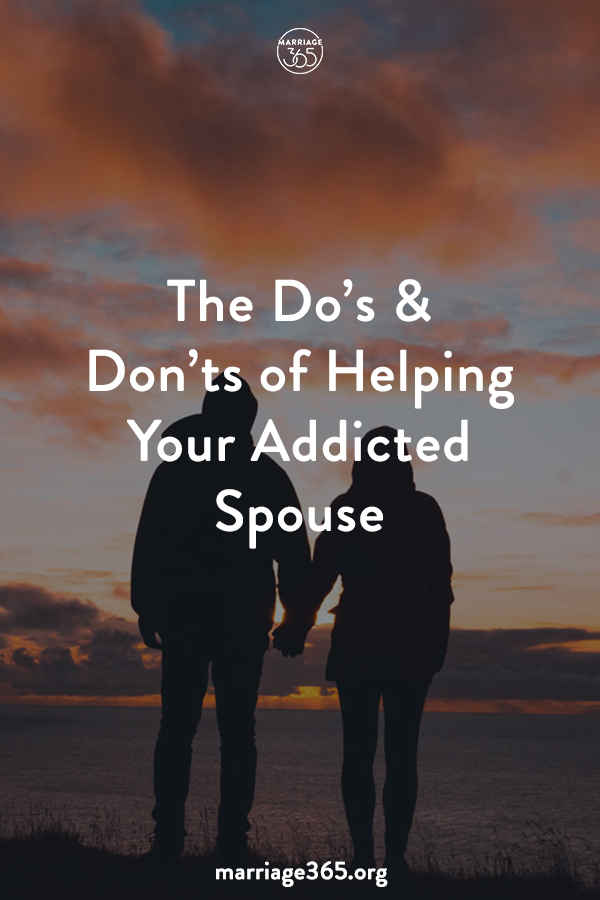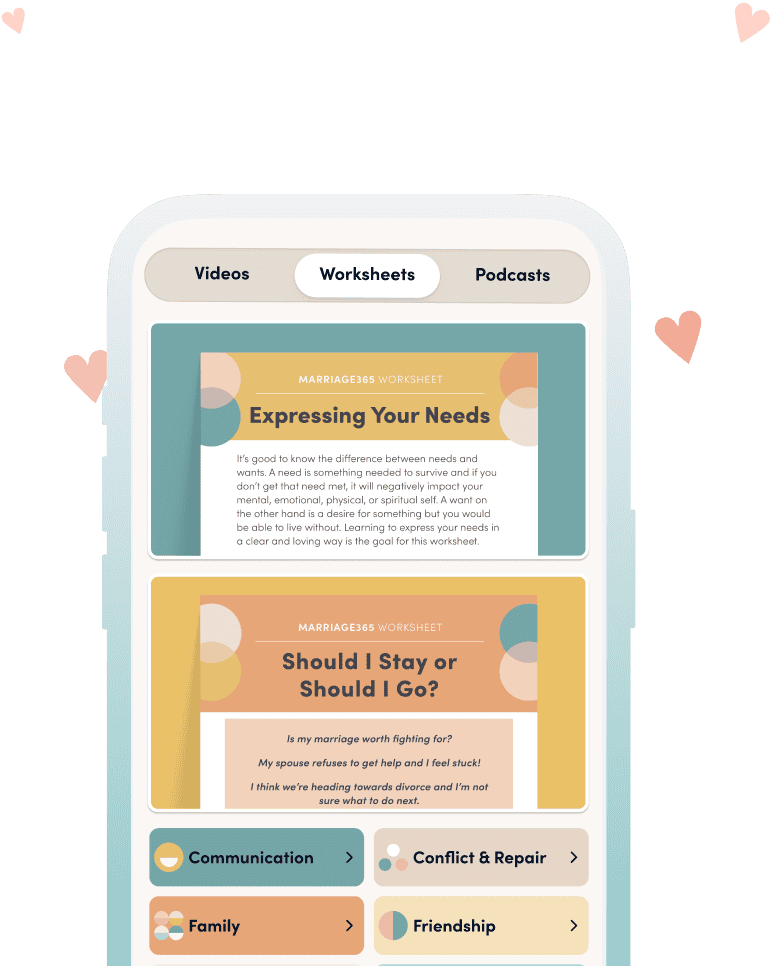
In 2016 alone, more than 50,000 people died of an overdose.
Unfortunately, addiction is a problem that is touching many households. In this year and beyond, more marriages will have to deal with problems of addiction – as if marriage doesn’t have enough of its own challenges.
If your spouse is struggling with addiction, know that you’re not alone. Recovery is a long road, but it is possible to get through this with your marriage intact.
The following list of do’s and don’ts of helping your addicted spouse may help you navigate the process.
DO
Learn about addiction
Addiction is a complicated disease that impacts the brain chemistry of the addicted person. Once someone becomes addicted, their brain becomes reliant on their substance of choice. Learn all you can about the science behind addiction, and you’ll better understand your loved one’s behaviors.
Show as much support as you can
If your spouse is open to a rehabilitation program, do all you can to encourage and support this positive step. This may include going to meetings or counseling sessions. Your spouse’s recovery is now the number one priority in your marriage.
Exhibit patience
Understand that change takes time. Addiction happens much faster than recovery. Even in a best-case scenario without any relapses, it can take months for your spouse to go through the various stages of withdrawal. Let him or her know you’re in their corner and you’ll be there when this is all over.
Take care of yourself
When you’re dealing with a spouse’s addiction, it’s easy to get caught up and forget about your own needs. This can be dangerous for you and your marriage. In order to help your spouse, you must be strong. This means you must have a solid mental and physical foundation. Continue exercising and eating right through your spouse’s recovery, and spend time on your own relaxation and mental health. Try meditation or yoga to help deal with the stresses that addiction brings.
Build a support network
Addiction is a huge and ugly beast that you should never face alone. Reach out to people you trust and join a support network like Al-Anon or Nar-Anon. You’ll be thankful for the emotional and physical support along the way.
DON’T
Lie for your spouse
Lying for an addicted spouse falls under the category of enabling, and that’s a big no-no. It may feel like you’re doing the right thing, but enabling is actually the opposite of helping. Let your spouse know that you’re not going to lie for him or her. You may decide together who to tell about the addiction, but understand that this isn’t something you can handle in isolation. You will need to tell people, even if it’s a select few.
Blame or judge
Addiction is truly a disease. It isn’t your spouse’s fault that he or she cannot stop using. Addiction also changes the brain chemistry, so your spouse isn’t in complete control of their actions. It’s easy to want to blame someone for lying or stealing, but you must resist the urge. It’s important to handle this with compassion.
Give ultimatums
Don’t expect that your partner will stop using because you gave an ultimatum. If you give your spouse a choice between you or the substance, you probably won’t win. This isn’t because your spouse doesn’t love you. It’s because your loved one has lost control. His or her brain has become hardwired to choose drugs or alcohol over everything else. This is part of the disease and it has nothing to do with you or your marriage.
Expect things to go back to the way they were
Addiction changes people and it changes marriages. This doesn’t mean things will be bad after addiction. It just means they will be different. It’s even possible that this experience will draw you closer. Think of addiction in a marriage the same way you would think of any other major devastation like cancer or the death of a loved one. Your lives will not go back to the way they were before you faced those things.
Blame yourself
This isn’t your fault. Let that sink in for a moment because it’s so easy for spouse’s of addicts to blame themselves. Your husband or wife is his or her own person. Even if you started using the addictive substance together, his or her addiction is not your fault. There are many factors that impact addiction, including demographics, genetics and childhood trauma.
When you’re married to an addict, it’s important to take things one-day-at-a-time. Whenever you feel stressed or overwhelmed, reach out for help. You and your spouse can get through this together, but you cannot do it alone.
Understand that things will never be the same, but they may be better. Trust in yourself, your marriage and the rehabilitation program, and you can help your loved one through this difficult time.
Written by Joshua Butcher
Joshua Butcher is an ex-addict and founder of the Ohio Addiction Recovery Center. Since his recovery began, he has enjoyed using his talent for words to help spread treatment resources and addiction awareness.








